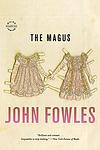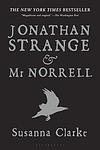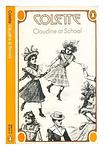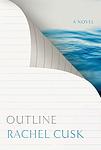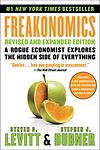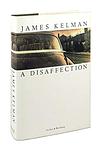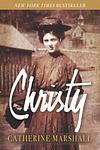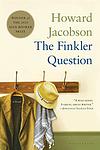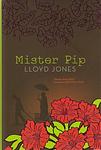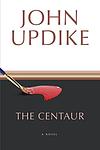The Greatest "Teachers" Books of All Time
Click to learn how this list is calculated.
This list represents a comprehensive and trusted collection of the greatest books. Developed through a specialized algorithm, it brings together 284 'best of' book lists to form a definitive guide to the world's most acclaimed books. For those interested in how these books are chosen, additional details can be found on the rankings page.
Genres
The "Teachers" category of books encompasses works that focus on the experiences, challenges, and impact of educators in various settings. These books may explore the personal and professional lives of teachers, their relationships with students and colleagues, and the broader social and political contexts in which they work. They may also offer insights into teaching methods, pedagogical theories, and educational policy. Overall, the "Teachers" category celebrates the vital role that educators play in shaping the minds and futures of their students.
Countries
Date Range
Reading Statistics
Click the button below to see how many of these books you've read!
Download
If you're interested in downloading this list as a CSV file for use in a spreadsheet application, you can easily do so by clicking the button below. Please note that to ensure a manageable file size and faster download, the CSV will include details for only the first 500 books.
Download-
1. Candide by Voltaire
"Candide" is a satirical novel that follows the adventures of a young man, Candide, who is living a sheltered life in an Edenic paradise and being indoctrinated with Leibnizian optimism by his mentor. When he is expelled from the paradise for kissing a baron's daughter, he embarks on a journey around the world, witnessing the horrors of war, natural disasters, and human cruelty. Throughout his journey, Candide maintains his optimistic philosophy, despite the constant hardships he faces, ultimately concluding that one must cultivate their own garden, a metaphor for taking control of one's own destiny.
-
2. The Woman in White by Wilkie Collins
A captivating tale of mystery and suspense, "The Woman in White" follows the story of a young art teacher, Walter Hartright, who encounters a mysterious woman dressed in white on a moonlit road. The woman is revealed to be a mental asylum escapee, and as Hartright delves into her story, he uncovers a web of deceit, madness, and dangerous secrets involving a wealthy, titled family. The narrative explores themes of identity, insanity, and the abuse of power, with a complex plot filled with twists and turns.
-
3. The Prime of Miss Jean Brodie by Muriel Spark
The novel is set in 1930s Edinburgh and follows the story of six girls under the tutelage of an unconventional teacher, Miss Jean Brodie. Miss Brodie, in her prime, takes it upon herself to educate the girls about life, love, politics, and art, often disregarding the traditional curriculum. The narrative explores the influence of Miss Brodie on the girls, the consequences of her nonconformist teachings, and the ultimate betrayal that leads to her downfall.
-
4. Anne of Green Gables by L. M. Montgomery
The book follows the life of a young orphan girl who is mistakenly sent to live with an elderly brother and sister who originally wanted to adopt a boy to help them with their farm in Prince Edward Island. Despite the initial disappointment, the girl's charm, vivacity, and imagination soon win over her new guardians. The story details her adventures and mishaps in her new home, her struggles and triumphs at school, and her gradual maturing into a smart, independent young woman.
-
5. The Magus by John Fowles
The novel is a psychological drama that follows a young Englishman, Nicholas Urfe, who takes a teaching post on a remote Greek island to escape his dull life and a failed relationship. There, he meets a wealthy, mysterious man who introduces him to psychological games that blend myth, reality, and illusion. As Nicholas falls deeper into these manipulative scenarios, he begins to question his own sanity and reality. The story is filled with existential themes, exploring the nature of personal freedom, love, and the blurred line between reality and fantasy.
-
6. Ada or Ardor by Vladimir Nabokov
Set in an alternate universe where Earth is known as "Antiterra," the novel follows the lives of Ada and Van, two wealthy siblings who fall into a passionate and incestuous love affair. Their relationship evolves over a span of 70 years, as they navigate through family secrets, personal tragedies, and the complex nature of time. The book is a blend of romance, science fiction, and philosophical exploration, all told through the author's signature wordplay and intricate narrative style.
-
7. Decline and Fall by Evelyn Waugh
This novel follows the story of Paul Pennyfeather, a young man studying at Oxford University who is unfairly expelled and forced to take a job as a teacher at a chaotic school in Wales. His life takes a turn when he meets a wealthy widow and gets sucked into the high society lifestyle, only to be betrayed and sent to prison. The narrative is a satirical critique of the British class system, education, and the moral corruption of the rich.
-
8. Jonathan Strange and Mr Norrell by Susanna Clarke
Set in a parallel 19th-century England, this novel tells the story of two practicing magicians, Mr. Norrell and Jonathan Strange. Norrell, who aims to restore magic to respectability in England, is initially thrilled by Strange's natural aptitude for magic, and the two form a student-teacher relationship. However, their partnership soon deteriorates into rivalry as Strange, driven by the loss of his wife to the fairy realm, seeks to reintroduce the old, wilder forms of magic that Norrell disdains. Their conflict escalates, culminating in a magical duel that has profound consequences for the future of magic in England.
-
9. Nicholas Nickleby by Charles Dickens
The story follows Nicholas Nickleby, a young man who becomes the head of his family after his father's death. He and his family are left penniless by an unscrupulous uncle, who also sends Nicholas to work in a cruel and abusive boarding school. Nicholas eventually escapes, travels the country, meets a variety of eccentric characters, and has many adventures. Throughout his journey, Nicholas struggles against adversity and the greed and cruelty of others, while aiming to protect his sister and mother. The novel is a social critique, highlighting the terrible conditions of schools and the plight of the poor in 19th-century England.
-
10. Claudine by Colette
"Claudine" is a series of four novels that narrate the life of a young woman named Claudine from her adolescence in a small French village, through her experiences at a Parisian boarding school, to her marriage and adult life in Paris. The novels are renowned for their vivid descriptions of the French countryside and the complex, sensual, and independent character of Claudine. They also explore themes of female sexuality, education, and the struggle for personal freedom in a restrictive society.
-
11. Outline by Rachel Cusk
"Outline" is a novel that follows the story of a woman who travels to Athens to teach a writing seminar and engages in a series of conversations with various people she encounters. These include fellow authors, students, and locals, each of whom share intimate details of their lives, allowing the protagonist to reflect on her own experiences and emotions. The book explores themes of identity, storytelling, and the complexities of human relationships.
-
12. Olive Kitteridge by Elizabeth Strout
The book is a collection of 13 interconnected short stories revolving around Olive Kitteridge, a retired schoolteacher living in a small town in Maine. Olive is a complex character with a prickly exterior but a deep well of emotion and empathy beneath the surface. Through her interactions and relationships with various town residents, the book explores themes of love, loss, aging, and change, painting a rich portrait of a community and its inhabitants.
-
13. Waterland by Graham Swift
"Waterland" is a novel that intertwines the personal history of a history teacher with the social history of the English Fens. The narrative alternates between the past and the present, exploring themes of history, memory, and storytelling. The protagonist's personal story of love, tragedy, and madness is inextricably linked to the history of the Fens, a marshy region in eastern England. The novel also addresses the question of whether history is a cyclical process or a linear one, and how the past influences the present.
-
14. 1Q84 by Haruki Murakami
The novel is a complex and surreal narrative that intertwines the lives of two protagonists: a woman assassin who becomes embroiled in a mysterious and dangerous cult, and a male writer caught in a complicated love triangle. As they navigate their respective challenges, they unknowingly cross into an alternate reality, referred to as 1Q84, where the lines between fact and fiction blur. The novel explores themes of love, fate, and the power of the individual against the constraints of a conformist society.
-
15. Juan De Mairena by Antonio Machado
"Juan de Mairena" is a collection of philosophical musings, aphorisms, and reflections on a range of topics such as politics, art, religion, and education. The work is presented as the thoughts of an imaginary character, Juan de Mairena, a teacher and amateur philosopher. Through this character, the author explores and critiques Spanish society and culture, often with a satirical edge. The book is noted for its introspective and contemplative tone, blending elements of both fiction and non-fiction.
-
16. Freakonomics by Steven D. Levitt, Stephen J. Dubner
This book explores the hidden side of everything, debunking conventional wisdom and revealing surprising connections between seemingly unrelated things. It uses economic theories to explain social phenomena such as the decrease in crime rates in the 1990s, the impact of a person's name on their life outcomes, and the inner workings of drug gangs. By using data and statistics, it challenges the way people think about the world and encourages them to question the accepted truths in society.
-
17. A Disaffection by James Kelman
"A Disaffection" is a thought-provoking novel that delves into the mind of Patrick Doyle, a disillusioned schoolteacher living in Glasgow. As he navigates through his mundane existence, Patrick's internal monologue exposes his deep-rooted dissatisfaction with society, his job, and his relationships. Through a raw and introspective narrative, the book explores themes of alienation, identity, and the struggle to find meaning in a world that seems devoid of purpose.
-
18. Une Si Longue Lettre by Mariama Bâ
"Une Si Longue Lettre" is a poignant and introspective novel that delves into the life of Ramatoulaye, a Senegalese woman who writes a long letter to her childhood friend, Aissatou, following the death of her husband. Through her letter, Ramatoulaye reflects on her marriage, the challenges of being a woman in a patriarchal society, and the complexities of motherhood. With honesty and vulnerability, the book explores themes of love, loss, resilience, and the pursuit of personal freedom, offering a compelling portrayal of the female experience in post-colonial Africa.
-
19. Christy by Catherine Marshall
The novel is a historical fiction set in the early 1900s, which follows the journey of a 19-year-old woman who leaves her comfortable city life to become a teacher in a remote, impoverished mountain community in the Smoky Mountains of Tennessee. Through her experiences, she learns about the harsh realities of life, the power of faith, and the strength of the human spirit. Along the way, she also becomes torn between two men, a charismatic and passionate preacher and a pragmatic and grounded doctor.
-
20. Reading Lolita in Tehran by Azar Nafisi
The book is a memoir that takes place in Iran from 1979 to 1997, during the Islamic Revolution and the Iran-Iraq War. The story focuses on a professor who secretly gathers seven of her most committed female students to read forbidden Western literature in her home. As they read and discuss works by authors such as F. Scott Fitzgerald, Jane Austen, and Vladimir Nabokov, they explore their personal dreams and the losses they suffered due to the political, social, and cultural climate of the time.
-
21. The Silent Steppe: The Story Of A Kazakh Nomad Under Stalin by Mukhamet Shayakhmetov
"The Silent Steppe: The Story Of A Kazakh Nomad Under Stalin" is a gripping memoir that chronicles the life of a Kazakh nomad during the brutal reign of Stalin. The book offers a firsthand account of the hardships, persecution, and forced collectivization experienced by the Kazakh people under Soviet rule. Through the eyes of the author, readers gain insight into the resilience, traditions, and struggles of the Kazakh nomadic culture in the face of political oppression.
-
22. The Finkler Question: A Novel by Howard Jacobson
The novel explores themes of identity, loss, and love through the lens of three friends - two Jewish and one who wishes he was. It delves into the psyche of the characters as they grapple with anti-Semitism, self-hatred, and their own personal tragedies. The protagonist, a man who starts to believe he is Jewish after a violent mugging, navigates his new identity with humor and introspection, leading to a poignant exploration of what it means to belong.
-
23. Half Broke Horses: A True Life Novel by Jeannette Walls
Half Broke Horses is a novel based on the life of the author's grandmother, Lily Casey Smith, who grew up in the early 1900s on a ranch in Texas. The book follows Lily's journey from a young girl with a thirst for adventure to a strong-willed woman who becomes a teacher, a rancher, and a mother. Despite facing numerous challenges and setbacks, Lily remains determined and resilient, forging her own path in a world that often tries to limit her. The book is a tribute to the indomitable spirit of one remarkable woman and a celebration of the American West.
-
24. Mister Pip by Lloyd Jones
In a war-torn village on a remote island, a young girl named Matilda finds solace and escape in the pages of a book called "Great Expectations". Taught by a mysterious and charismatic teacher, Mr. Watts, Matilda becomes enthralled by the story and its protagonist, Pip. As the conflict escalates and the outside world encroaches upon their isolated community, the power of literature and the transformative impact of storytelling are revealed, leaving a lasting impression on Matilda and those around her.
-
25. The Centaur by John Updike
The novel follows the life of George Caldwell, a high school teacher in a small town in Pennsylvania, who is struggling with feelings of disappointment and failure. He is constantly compared to his father, a mythological centaur, symbolizing the conflict between the mundane and the extraordinary. The narrative alternates between the modern world and the mythological realm, exploring themes of identity, disillusionment, and the struggle between the human and the divine.
Reading Statistics
Click the button below to see how many of these books you've read!
Download
If you're interested in downloading this list as a CSV file for use in a spreadsheet application, you can easily do so by clicking the button below. Please note that to ensure a manageable file size and faster download, the CSV will include details for only the first 500 books.
Download



